Page Contents
Carbon emissions frequently emerge as a key indicator of their impact in conversations surrounding eco-conscious initiatives. Carbon emissions, in essence, refer to carbon dioxide (CO2) – a compound also released by both flora and fauna during respiration. Our heating systems also discharge this very compound into the environment. Though releasing carbon dioxide is a natural byproduct of heat generation, persisting with a heating system of lower efficiency can lead to detrimental effects. Such systems harm the environment and can become a financial burden due to increased costs associated with frequent repairs and replacements. The good news is that an advanced energy efficient heating system enhances your comfort and ensures your safety and security.
Minimizing Carbon Footprint with an Energy Efficient Heating System
The heating system in your home plays a significant role in determining the amount of carbon emissions released into our planet’s atmosphere. One effective strategy to lessen these emissions involves opting for a boiler or central heating system with a high-efficiency rating. In heating systems, efficiency is quantified using AFUE – Annual Fuel Utilization Efficiency. This metric essentially evaluates the system’s capability to transform fuel into heat energy across a span of 12 years.
AFUE is indicative of the relationship between the heat output of a system and the total fuel it utilizes. A system’s efficiency escalates with an increase in its AFUE rating. To illustrate, consider a heating system with an AFUE rating of 90%. This implies that the system is proficient in converting up to 90% of its consumed fuel into heat, maximizing energy use. The residual 10% is typically released into the atmosphere, often through a vent or chimney.
Among heating systems, boilers and furnaces attain the most impressive AFUE ratings. These advanced systems can boast AFUE ratings that range from 95% to a remarkable 98.5%. These high-efficiency systems might have a higher initial price tag compared to their lower-rated counterparts. Nonetheless, their operational costs are considerably lower.
Recognizing a High-Efficiency Heating Systems
Typically, heating systems that fall into the low-efficiency category possess AFUE ratings ranging from 55% to 70%. These systems usually depend on a continuously burning pilot light for operation. Additionally, they are characterized by having a robust heat exchanger and incorporating specific designs to manage the flow of combustible gases safely.
Heating systems that are considered moderately efficient typically exhibit AFUE ratings between 80% and 83%. These models don’t have traditional pilot lights, instead opting for electronic ignition. Additionally, they often incorporate exhaust fans to control air and gas circulation effectively.
In contrast, an energy efficient heating system is engineered with a sealed combustion unit and dual heat exchanger. This design allows for the condensation of flue gases, thereby maximizing the efficiency of the system.
The Efficiency Gap Between Older and Newer Heating Systems
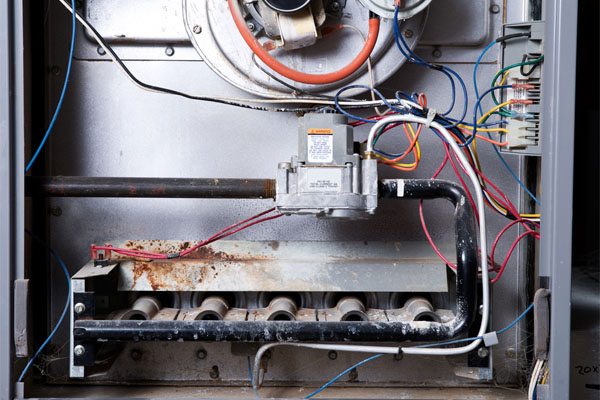
No matter the initial quality of your heating system, the effects of aging are inevitable. Regular usage leads to wear and tear in older systems, and even with diligent maintenance, some parts will inevitably fail or sustain damage, necessitating repairs or replacements.
Additionally, older systems lack the technological advancements found in newer models. These advancements are crucial in enhancing the efficiency of heating systems. Modern models are engineered to provide more effective heat generation and achieve superior fuel consumption efficiency. This combination of improved technology and design makes newer heating systems distinctly more reliable and efficient compared to their older counterparts.
Optimizing Carbon Emission Reduction
With a energy efficient heating system installed, there are additional measures you can take to further diminish your carbon emissions and lower energy costs, such as:
Addressing Air Leakage Issues
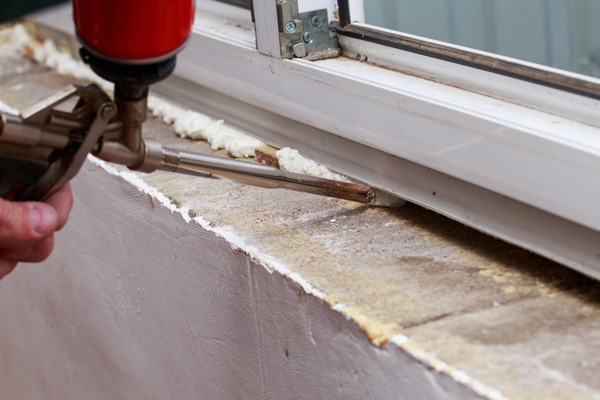
Air leaks pose a significant challenge by permitting warm air to escape and cold air to infiltrate from outside. Common areas where leaks occur include windows, doors, and various structural gaps like joints, cracks, and holes. Another factor contributing to heat loss is inadequate insulation, which should be rectified, preferably before the onset of winter. Fortunately, resolving air leaks typically involves straightforward remedies. Prompt identification and fixing of these leaky areas can lead to quicker resolutions.
Installing Programmable Thermostats
Incorporating programmable thermostats into your heating system enhances your control over indoor temperatures, allowing for optimized efficiency. These devices enable you to tailor the settings to align with your specific comfort needs at different times. For instance, you can set the thermostat to reduce the temperature when the house is empty and increase it shortly before your return. Additionally, programmable thermostats offer the flexibility to shut off automatically or continue operating during your absence.
Regular Maintenance of HVAC Air Filters
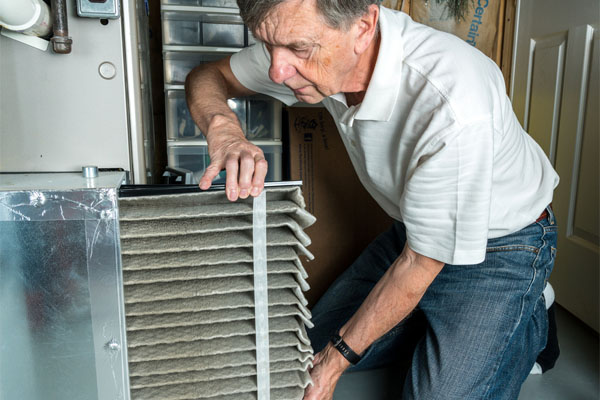
The efficiency of HVAC systems is significantly impacted by the condition of their air filters. These filters are designed to capture small airborne particles, but as they accumulate dirt and debris over time, the flow of warm air can be obstructed. This is often noticeable when the heating system’s performance declines due to a dirty air filter. To maintain the optimal functioning of your heating system, it’s crucial to have the air filter cleaned or replaced regularly.
Adjusting Thermostat Settings for Winter
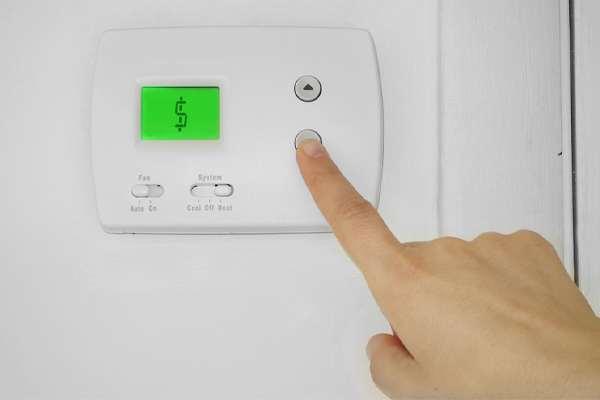
While it might appear counterintuitive, slightly lowering your thermostat by one or two degrees during winter can significantly reduce energy consumption. This minor adjustment also benefits the health of your heating system, as it alleviates the strain of excessive operation. To compensate for the cooler indoor temperature, adopting the simple practice of wearing an extra layer of clothing can comfortably maintain warmth.
Final Thoughts
The importance of judicious and responsible energy use cannot be overstated, especially considering its long-term implications. We take a significant step towards minimizing our environmental footprint by opting for high-efficiency heating systems. These systems reduce pollution and champion the cause of a cleaner environment. Additionally, the long-term cost savings they offer are an added benefit. This proactive approach has a dual advantage – it benefits the planet and our wallets. Truly, this is a scenario where everyone, including future generations, stands to gain.
Contact Modern Comfort for Expert HVAC Services
Modern Comfort stands as the leading provider of heating and cooling services in Central Maryland and Southern and Central Pennsylvania. Our team comprises highly skilled, certified technicians who deliver top-notch HVAC tune-ups, repairs, installations, and replacements. Each technician brings knowledge and experience, ensuring your HVAC system receives the best possible care.
We are proud to offer the most competitive prices for HVAC services in the area. Our tune-up services are designed to enhance your comfort, boost energy efficiency, and lower heating and cooling costs for your home. Should you require an HVAC repair or are considering a new system, we are here to recommend the most suitable options for your home and budget. At Modern Comfort, we stand behind our work with a comprehensive satisfaction guarantee. For a service appointment or a free in-home estimate, reach out to Modern Comfort today.
You can click here to contact us now or call us at (410) 429-7252 (MD residents) and (717) 489-3939 (PA residents) to find out more! Click the link to view our service area.

Related Articles:
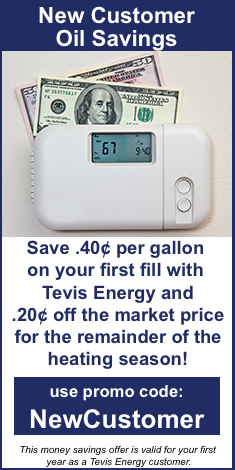
Recent Articles